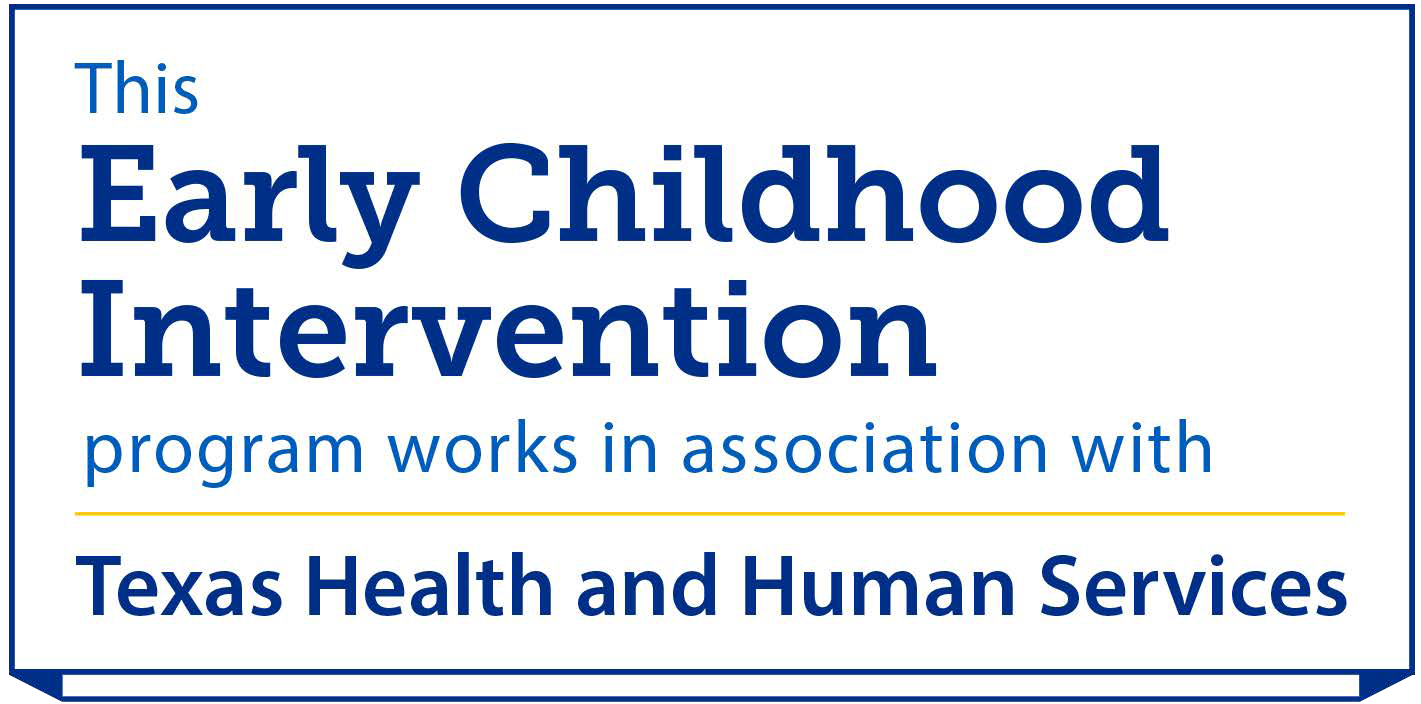ECI services help children, ages birth up to age three, grow and learn. ECI staff listens to a family’s concerns and works with them to plan services. Each family will have a different plan, according to what is needed for their child. Infants and toddlers learn best from families and caregivers through activities in their daily lives such as feeding, bathing and playing. ECI professionals “coach” families on how to use daily activities to help their children develop skills.
ECI asks families who can afford to do so, to share in the cost of services. The amount a family pays for ECI service is based on family size and income after allowable deductions. No child and family will be turned away because of an inability to pay. Those families receiving any Medicaid or federal assistance never pay for ECI services. Parents of children with Medicaid always receive ECI services at no cost. Detailed cost share information can be found in our Paying for ECI Services Brochure.
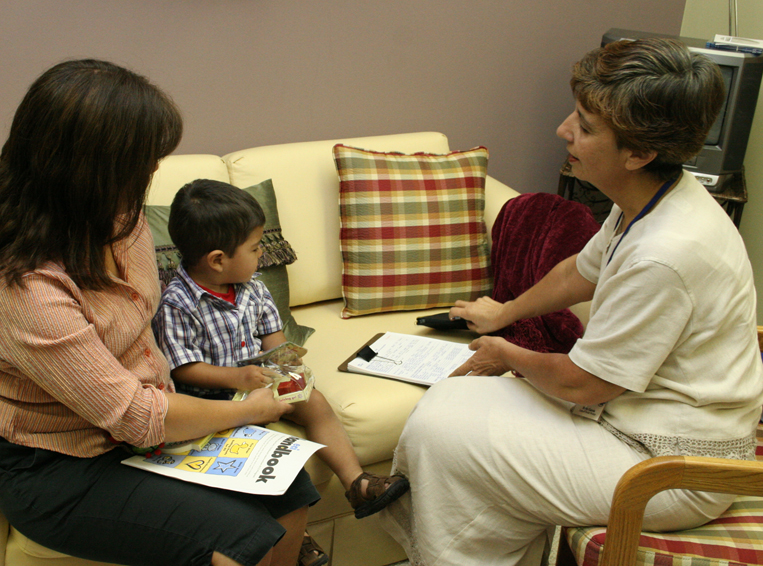
Case Management & Service Coordination
Service coordinators help families access and receive the services, resources, and support they need for their child’s development. These ECI service coordinators help your child and family get services, provide information about ECI services, and find other services in the community as needed. A service coordinator works with your family to support your child’s development and arrange for services in and outside of your ECI program.
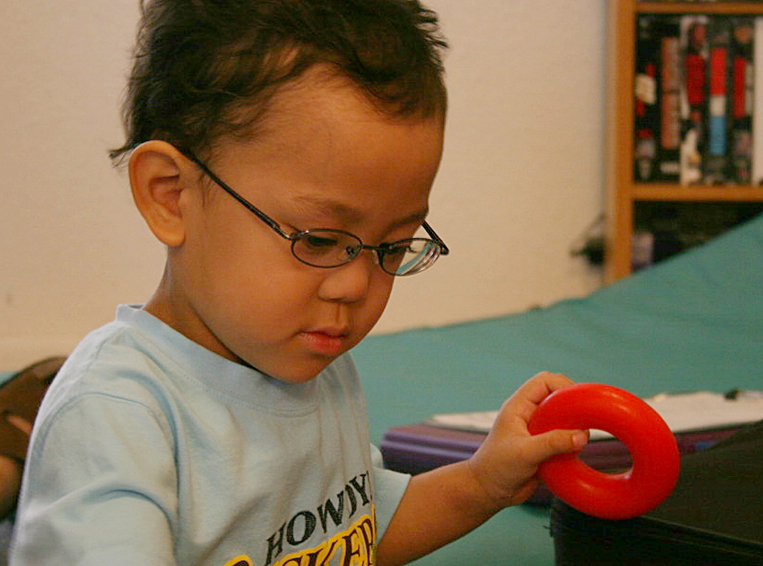
Hearing & Vision
ECI professionals work with physicians and local school districts who provide hearing, vision, and orientation and mobility services as needed. ECI professionals work with school district professionals when treating children with vision and hearing impairments.

Nutrition
Your child’s dietary needs can be evaluated and monitored by a pediatric registered or licensed dietitian. ECI specialists work with babies and toddlers who have feeding challenges, gastrostomy tubes, or other issues causing difficulty to gain weight such as premature birth or a diagnosis of “failure to thrive”.
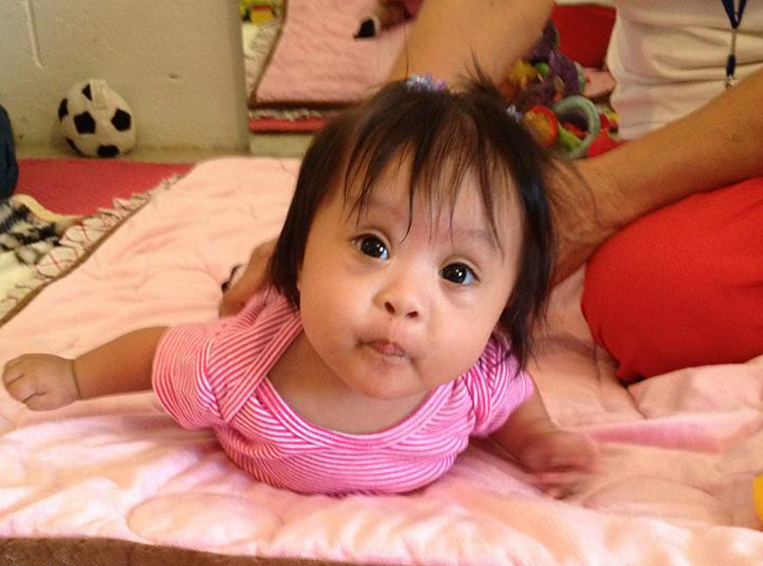
Occupational Therapy
Promotes the function and engagement of infants and toddlers and their families in everyday routines. By coaching families on interventions for activities of daily living families can work with their child every day.

Physical Therapy
Physical therapists help to identify and reduce movement disabilities, including designing and providing adaptive and assistive devices to help your child.
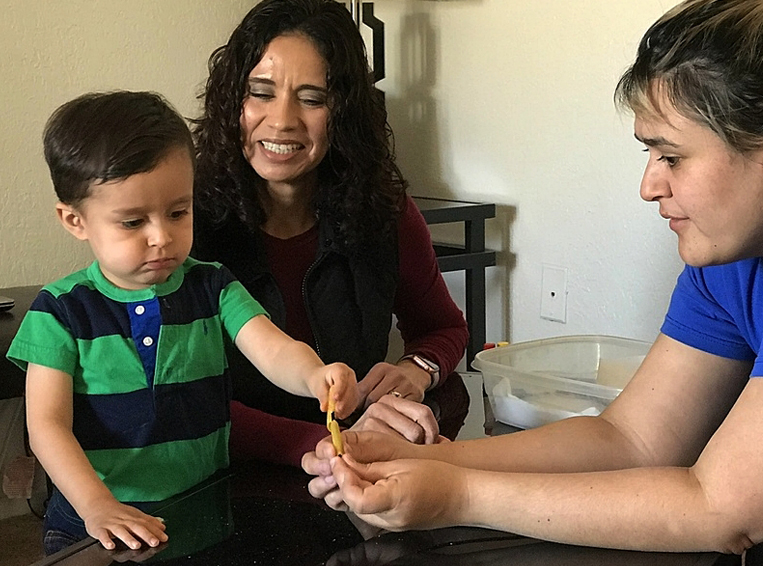
Specialized Skills Training
Specialized Skills Training (SST)
is a unique Part C Early Intervention service provided by Early Intervention Specialists (EIS). They provide developmental services by “coaching” families on infant and toddler development and behavior. This includes assisting families with challenging behaviors such as tantrums, biting, picky eating, and sleep issues. EIS professionals understand how infants and toddlers learn, socialize, and how developmental areas are connected.
Speech Therapy
Speech therapy can be provided to help children learn to communicate as well as assist with feeding issues. For many children, an inability to communicate with others, causes a child to be frustrated or angry which can lead to other behaviors such as temper tantrums and biting. Speech therapists can provide support and “coach” families on different techniques that can be implemented during daily routines.


